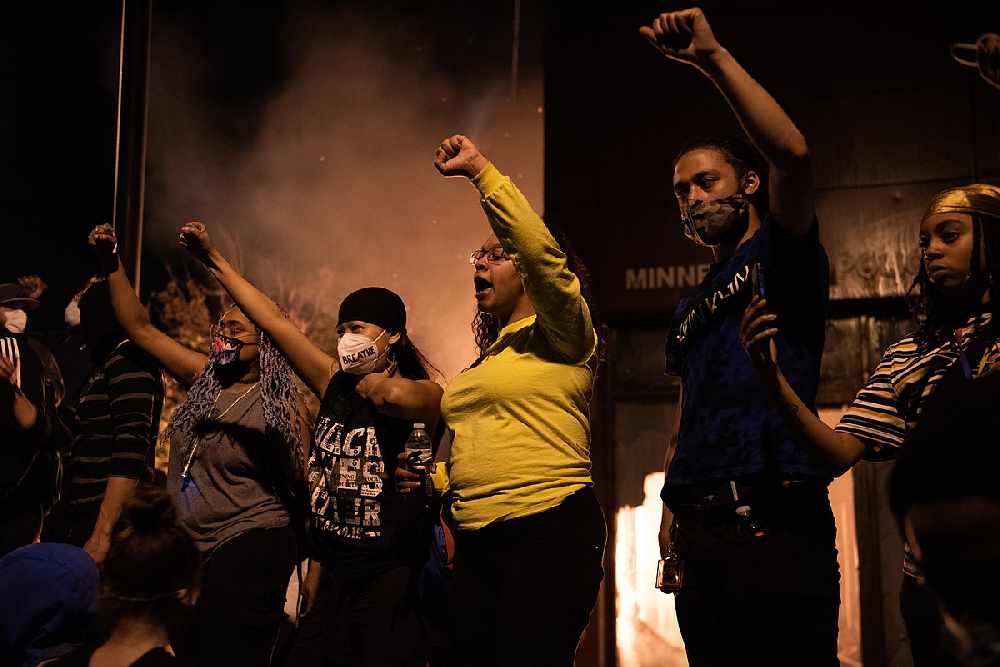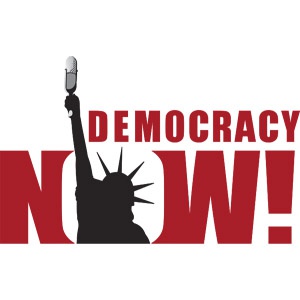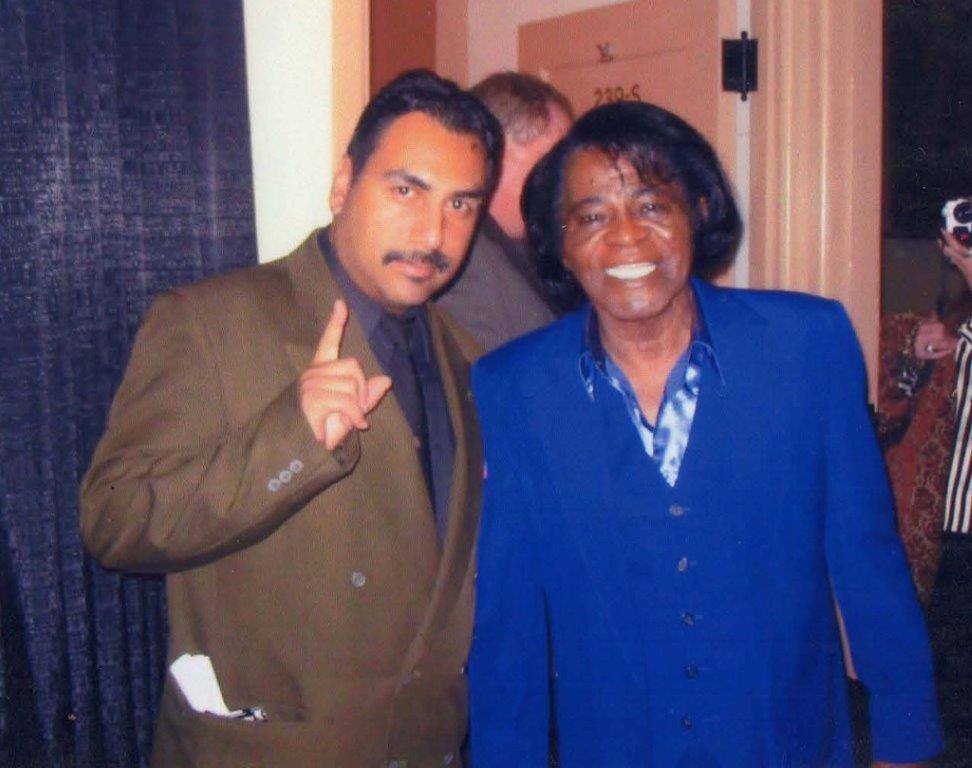
Photo from Commons.Wikimedia
By Alan Minsky | KPFK
This article is an addendum to my column from last week, We the People are Sovereign. Let's Demand Justice, which raised the question of whether the people of the United States are actually, as we are told from birth, the sovereign rulers of the land. This week, I want to be more specific about the ways in which we the people do and do not possess political authority in contemporary America.
Both articles are written in relation to the an ongoing popular rebellion following the police murder of George Floyd; and the broader question of how left progressives might be able to exert not only more influence on society, but even win the balance of political power in order to remake the country, for the first time in its history, according to the basic tenets of social justice.
In short, I'm asking if such a transformation is possible inside the American constitutional system? If so, how might we best set out to achieve it? And, given the current circumstances, what role does public rebellion play in the process?
At a basic level, this is a simple descriptive task. I do not intend to tackle the various theories of popular sovereignty, wrestle with Locke and Hobbes, or Hamilton and Madison. I just want to explain the basic outline of the current system, so as to understand how popular sovereignty could possibly exert transformative influence on our politics and social organization.
Of course, the word sovereign is pretty loaded. It recalls the days of absolute monarchs. This, however, serves a useful purpose because absolute monarchs were singular, unchanging, and easily understood as a stable source of sovereignty. The absolute monarch is established by law as the source of sovereignty and also performs the immediate functions of a current sovereign ruler, with all authority tracing back to the monarch.
In the United States, a democratic republic, sovereign power is much more dispersed. Temporary office holders and judges wield immediate state power in a constitutional system of checks and balances. These office holders are representatives of the people, who exert their ultimate sovereignty by having an opportunity to replace them through voting, albeit according to a staggered calendar. At the federal level, Representatives are elected every two years, Presidents every four years, Senators every six, while judges are lifetime appointments. All of this could be altered by the sovereign people, per the Constitution, but only through the super-laborious process of amending the Constitution. The only other options for shifting the roster of office holders and judges involves legislative processes like impeachment.
Already, it's clear that achieving transformative change through the ballot box will take a concerted multi-year effort. Of course, there are other long-established features of the American system that insulates the political establishment such as the two party system, the development of party bureaucracies and machines, and the advantages of entrenched incumbency. Of course, the icing on their 21st century cake is the prohibitive role of big money.
It should not be surprising then that American politics has operated with a rather stunning paradox for many decades - politicians are tremendously unpopular and yet they are re-elected at a staggering rate. Furthermore, per the role of money, no one was too shocked when the seminal study by Martin Gilens and Benjamin I Page showed what everyone already suspected: what becomes law and public policy in the United States does not reflect the wishes of the general public, but rather the wealthy. Gilens and Page revealed that the only time popular wishes are fulfilled by our elected representatives is when they coincide with those of the elite.
So, where does that leave us? We have an entrenched political establishment that effectively serves the interests of a de facto oligarchy. It all begs the question: which sovereign has more real political power? We the people of the USA or the Windsors across the pond? On paper, it's still us. The more constructive question is whether it's possible for us to garner our sovereign power, grow it, and make change?
OK, here's the upside. The United States of America is a very powerful nation with tons of (maldistributed) wealth. The fact that we're enshrined as sovereigns here is nothing to scoff at. Rather, we need to make a sober, honest assessment of what barriers we face in order to use this wedge, and see if we can turn it into something more than a pat on the head. And the time is now.
History has just created a rupture: the massive social dislocation caused by the pandemic. We must seize this opportunity; while we simultaneously fend off the forces of reaction looking to do the same. To do so, it is essential that we understand the rules of the road and the lay of the land.
As noted above, elections and voting are understood to be the key instruments for the expression of popular sovereignty in the American constitutional system. However, good old fashioned American civics recommends another avenue too: "petitioning" your elected representative.
This is especially important because we are actually at an inopportune moment in the election cycle. The pandemic severely undercut the grassroot campaigns of many progressive insurgents across the country, exacerbating the advantage of incumbents. Barring another unprecedented turn of events, the presidential challenger will be a career mainstream politician; and status quo politicians will hold the vast majority of seats in Congress come 2021. In order to have the response we need to the crisis, we have to insist these elected representatives change their ways. All evidence suggests they won't budge unless we're disruptive.
The massive public uprising following the murder of George Floyd has exhibited the power of extra-electoral direct action. Currently, entrenched incumbents are scrambling to draft legislation to address police violence; and the movement is poised to hold them accountable. This is a model for our moment. We may still be a long way from eliminating the carceral state, de-militarizing the police, or even altering the logic of a criminal justice system that is racist to its core; but the progress being made is due to direct action not victories at the ballot box.
Similarly, before the COVID-19 public health crisis and economic meltdown, many left progressive policies were approaching majority support across the entire population - however, Bernie Sanders failed to win the Democratic nomination. All evidence suggests these policies are substantially more popular today. We have entered a unique period in American economic and political history, in which direct state intervention is necessary to maintain anything resembling the average American standard of living. This is Bernie Sanders' turf; but we have Joe Biden (or Donald Trump) instead. So, we must organize and insist upon a progressive response that builds up public infrastructure and serves the needs of all poor, working, and middle class people. We also have to take names.
While we cannot expect public mobilization on a scale comparable to the outpouring of passion these past two weeks, people will almost certainly take to the streets with unemployment 13% or higher. Also, we can expect activist mobilizations in support of policies like Medicare for All and the Green New Deal that already have movements behind them. This direct action dynamic will make very clear which elected officials are with us and which are against us. We will not be shy about letting our foes know that they will face serious primary challenges.
Still, all of this is relatively easy. What's difficult will be building a movement, both powerful enough and disciplined enough to overcome the very real barriers that exist in the architecture of the contemporary American political system that limit the expression of popular sovereignty. If we review what those are, we begin to see an outline of what is necessary.
America's staggered elections require that any movement seeking significant political change have a long-term strategic vision; as electoral victories have to be strung together across a number of election cycles before real change can be felt by the average citizen - especially if the White House is not among those victories. Such a movement also needs to overcome the significant advantages held by incumbents and other status quo politicians, like support from the Democratic Party establishment and its network of major donors. For this end, a political insurgency needs access to the public both to build support for its program and expose the failings of the established political class. This can be achieved through public demonstrations and activism, as well as the growth of movement-friendly media (which fortunately has been happening).
In short, America needs its left to coalesce into something close to, but distinct from a political party - as it would continue to operate both inside and outside the Democratic Party. One thing for sure, the formation must have a clear political platform (the Sanders 2020 platform, adjusted to a post-COVID-19 world, would fit the bill for now); and one of its central purposes would be to unify the left around supporting one candidate in every race. To be clear, every Federal seat should be challenged if the incumbent is not supporting a left progressive agenda as well as responding to the demands of the movements. As such, this political formation would be in constant coordination with social movements and direct action campaigns; and, ala Gramsci, nurture a counter-hegemonic culture.
This may seem impractical, amorphous and unruly - but, given the rules of the American road and the lay of the land, it's a very rough draft of what'll be necessary if we're to reclaim our popular sovereignty.
-
 Washington tramples UCLA 48-14 on Senior Night
Washington tramples UCLA 48-14 on Senior Night
Washington steamrolled UCLA 48–14 on Senior Night at the Rose Bowl, capitalizing on turnovers, special teams chaos, and a dominant night from QB Demond Williams Jr.
-
 UCLA Football Wins Its Third Straight Game Ahead of Ranked Matchup
UCLA Football Wins Its Third Straight Game Ahead of Ranked Matchup
UCLA keeps rolling. After edging Maryland 20–17 at the Rose Bowl, the Bruins have quietly stacked three straight wins and are heading into another ranked showdown. Charlie Gonzalez breaks down the grind, the grit, and the moments that mattered.
-
 What Are We Cheering For?
What Are We Cheering For?
Every holiday, every weekend, every so-called American ritual came with a side of football. The game would be on, and we were supposed to care. I didn’t. Not really. Not until I almost did. For a brief stretch, when my dad worked with the Clippers during the Lob City era, I started to believe. Chris Paul, Blake Griffin, DeAndre Jordan — it felt like swagger, like culture, like something to belong to. Then the trades came, the team got gutted, and the curtain dropped. It wasn’t family. It wasn’t culture. It was business. That moment stuck. The more I watched, the more the wires showed: how ritual gets packaged, sold, and weaponized. How meaning becomes merchandise. How attention becomes empire.
-
 When AI Replaced Our Comics
When AI Replaced Our Comics
When AI replaced hand-drawn comics in our newsroom, I saw more than ugly art — I saw the erosion of what makes journalism worth doing.
















